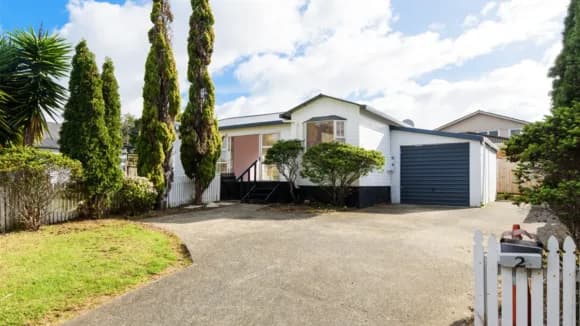
Property Investment
What happens in due diligence for an investment property?
This article shows you exactly what you need to do as a property investor during due diligence. This includes costs and a step by step guide of what to do.
Due Diligence
7 min read

Author: Ed McKnight
Resident Economist, with a GradDipEcon and over five years at Opes Partners, is a trusted contributor to NZ Property Investor, Informed Investor, Stuff, Business Desk, and OneRoof.
Reviewed by: Laine Moger
Journalist and Property Educator, holds a Bachelor of Communication (Honours) from Massey University.
Due Diligence (or The Detail Dive, as we like to call it) is part of the process of buying a property.
It’s a 10-day period between when you decide you like a property and when you commit to buying it.
During this time you’ll often apply for a mortgage from the bank.
Getting a “yes” from the bank is often the most time-consuming part of due diligence. So, in this article, you’ll learn exactly what you need to do during due diligence to get your lending sorted.
Surprisingly, some property investors sign contracts to buy properties before talking to the bank. That’s assuming it’s a conditional contract.
Most investors put the property under contract first, before heading to a mortgage broker. But, this is on the basis the contract has a “right to cancel clause”. In other words, if you can’t get a mortgage you can cancel the contract.
It can take banks several days (or weeks) to give you an answer. This eats into a big chunk of your 10-day deadline. So, one of the first things you should do after you sign a contract is get on to the bank approval.
Most mortgage brokers will want to see you as soon as you sign the contract. This means they can get your application into the bank as soon as possible.
Sometimes investors will get a pre-approval before signing a contract.
A pre-approval is when a bank gives an offer of finance, which is conditional on you finding a property, but this isn’t always an option. Sometimes banks get busy and stop providing pre-approvals, especially to new customers.
In this instance, it’s worth using calculators to get a sense of how much an investor can borrow. You can also talk to a mortgage adviser to get a ballpark figure.
No, you don’t have to, but it’s usually in your best interest.
Mortgage brokers ensure your application is right the first time. This saves you time and gives you a better chance of getting it approved.
To put your mortgage application into the bank you’ll need to give your broker:
Miss any details and the bank will likely ask for more information.
That slows down your finance application and eats away at your 10-day deadline for due diligence.
Of course, you can always ask for an extension from a developer, but there’s no guarantee you’ll get it. That’s why it’s always a good idea to get it right the first time.
Register for Opes+ where you can access the Ultimate Guide to Due diligence.
Mortgage brokers will often tell you: “It’s always a good idea to tell your mortgage broker everything.”
Not because everything is going to be necessary, but because they are in the best position to make the call about what they will put in the mortgage application.
But we’re all human and sometimes people forget, or don’t know what to tell their mortgage broker.
Unfortunately, a deceit, whether intended or not, is extremely hard to come back from – in the bank’s eyes. They will (rightly or wrongly) label you as dishonest and that is very hard to repair.
Mortgage brokers need time to work with the bank.
In some cases they’ll work with multiple banks, so that if one says “no” they can try another.
Every bank is different. It’s completely normal for one bank to approve your lending while another will not.
Each bank has different lending policies and criteria. For example, ANZ will not consider income earned from overtime, but Westpac will. This means nurses applying for a mortgage are generally more suited to Westpac.
Similarly, BNZ has policies more favourable for women on maternity leave.
That’s not to say that every nurse needs to work with Westpac, or expectant mothers should only head into BNZ. After all, this is only current at the time of writing. Banks change their lending policies all the time.
But it’s worth accessing this kind of insider knowledge through a broker. If your application is tight, a broker may be able to rejig your application to give it a better shot.
For that you might discuss:
- cancelling credit cards (if you don’t use them)
- extending mortgage terms on existing properties, or
- temporarily reducing KiwiSaver contributions.
Usually nothing. Brokers get paid when banks approve lending. So, there’s an added incentive for them to get your application over the line.
On the odd occasion some mortgage brokers will charge fees, but most don’t cost anything.
But, there are still costs when applying for a mortgage. The bank will often ask you to get a registered valuation. This is done by a registered valuer, who is the eyes and ears of the bank. They confirm a property is worth X amount.
A valuation typically costs around $950, depending on house type and location.
Christchurch valuations are slightly lower, around $850, whereas in Auckland you’ll likely pay more than $1,000.
When you buy a property off-the-plans you get to choose when to get the valuation, although our team at Opes Mortgages encourages you to do it upfront.
This is at an additional cost but lowers your risk.
Read more: Completion certificates - Why would I pay extra for a valuation upfront?
One risk of buying New Builds is there can be a long time between when you go unconditional on the contract ... and when it’s built.
If your finance is approved in due diligence you’ll be given a pre-approval.
Usually, these are for 12 months, but your letter will say the end date on the first page.
Now, if your property takes 15 months to build, your pre-approved finance will lapse.
This means when it comes to paying for your property you may need to re-apply to the bank.
So, while you have the finance approved today, you also need to make sure you can still get approved in the future. This is why you shouldn’t be shocked if your broker advises you against buying a new car or having a baby in the short term.
Remember, it’s not personal, they just want to make sure you can get the money to buy the house when you need it.
Read more: https://www.opespartners.co.nz/new-builds/long-settlements
There is a difference between the deposit a developer needs and the deposit a bank needs.
A developer requires a 10% deposit once the property goes unconditional. This is paid at the end of the 10-day due diligence process before construction starts.
A bank requires you to have a 20% deposit to approve your lending. But you don’t need the full 20% available until it comes to settlement, or when the build is completed.
Most investors will borrow this deposit, using equity within another property.
Once the property build is complete, your mortgage broker will get back in touch.
That’s when you’ll have a conversation about loan structures and what interest rates will line up with your goals. For example, whether you want to fix the rates for one, two or five years.
Until then, rest easy knowing you have paid the deposit and the rest is ready and waiting.
Resident Economist, with a GradDipEcon and over five years at Opes Partners, is a trusted contributor to NZ Property Investor, Informed Investor, Stuff, Business Desk, and OneRoof.
Ed, our Resident Economist, is equipped with a GradDipEcon, a GradCertStratMgmt, BMus, and over five years of experience as Opes Partners' economist. His expertise in economics has led him to contribute articles to reputable publications like NZ Property Investor, Informed Investor, OneRoof, Stuff, and Business Desk. You might have also seen him share his insights on television programs such as The Project and Breakfast.
This article is for your general information. It’s not financial advice. See here for details about our Financial Advice Provider Disclosure. So Opes isn’t telling you what to do with your own money.
We’ve made every effort to make sure the information is accurate. But we occasionally get the odd fact wrong. Make sure you do your own research or talk to a financial adviser before making any investment decisions.
You might like to use us or another financial adviser